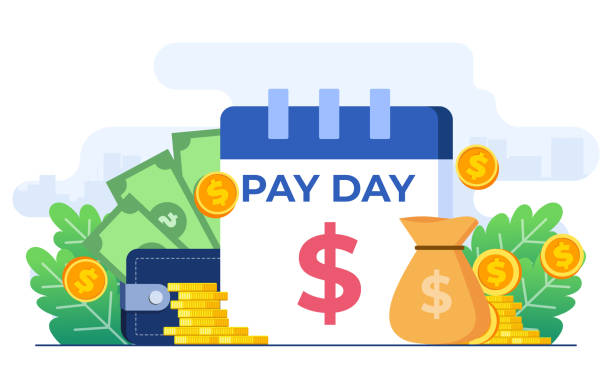When it comes to personal finance, it is good to be aware of the various credit options available to you. It takes persistence, planning, and self-control to build a solid credit history. Every reasonable step you take helps build a base that lenders can see and trust.
A secured credit card offers individuals a way to strengthen their financial standing through structured responsibility. This is particularly beneficial for people who want to build or repair their credit score. This post talks about practical strategies to improve your credit health.
Contents
- 1 Set a Strong Starting Point
- 2 Practice Consistent Payment Habits
- 3 Effectively Manage Your Credit Use
- 4 Track Statements and Activity Regularly
- 5 Use Credit for Important Purchases
- 6 Monitor Activity Through Statements
- 7 Take Small Steps to Build Your Credit
- 8 Grow Your Financial Opportunities Gradually
Set a Strong Starting Point
One should never feel rushed while opening a new account, as hasty actions might lead to long-term implications. You should evaluate the terms carefully to help establish reasonable expectations for usage and repayment requirements. You should set a deposit amount that is reasonable in relation to your available savings.
You should keep the first few months simple to minimize mistakes. Regular, small payments that are easy to make show that you can be trusted. Avoiding unnecessary balance creation protects you from interest charges and encourages prudent behavior. A planned start develops trust and sends sound signals to bureaus about reliability and stability.
Practice Consistent Payment Habits
On-time payments are the foundation of creditworthiness. Every billing cycle is a chance to prove how disciplined and on time you are. So, it’s important to pay attention to your due dates because late or missed payments can hurt your grades.
Scheduled drafts or automated reminders make it easy to be on time. Regular habits help you remember things, which can save you from stress and penalties. If you treat each statement as necessary, lenders will see the account holder as trustworthy. If you follow this pattern over and over again, it makes your history stronger, which, over time, builds confidence with creditors.
Effectively Manage Your Credit Use
Your credit score reveals your usage and payment history. Balances that are carried close to the available limit indicate possible danger. It demonstrates your self-control if you keep your usage below thirty percent of the cap. You can keep usage steady by spreading out your purchases over time.
When charges accrue too quickly, balances may appear inflated during reporting periods. Moderation and cautious preparation help to maintain healthier ratios. Responsible utilization promotes a stronger profile while allowing for unforeseen costs without exceeding restrictions.
Track Statements and Activity Regularly
Tracking activity ensures that no charges are missed. Any possible inconsistencies, fees, and spending trends are revealed in each statement. Moreover, you can prevent minor errors from developing into detrimental complications through awareness.
Online dashboards and mobile alerts provide easy-to-use resources for staying vigilant. Additionally, tracking balances also lowers the likelihood of overspending. In addition to strengthening financial control, routine inspections provide transparency and act as a safeguard.
Use Credit for Important Purchases
Selective spending helps cut down on temptation and significantly improves discipline. Setting quintessential spending priorities sustains an ecochamber for maintaining predictable balances and manageable repayment. When repayment becomes a bit of a problem, luxury or discretionary purchases can incite stress.
Maintaining measured and proper activity without financial strain is possible when you concentrate on regular, essential expenses like groceries or gas. Predictable charges align a little bit better with monthly budgets. In the end, this sort of approach creates a space that is consistent and accountable.
Monitor Activity Through Statements
Every monthly statement has essential information about how much you spend and how much you owe. Checking each line makes sure everything is correct and finds mistakes early. If you don’t fix mistakes or fraudulent charges, they can hurt your credit. Regular checks also help people become more conscious of their spending habits.
Finding unusual charges promptly will save you trouble in the future. You can call the issuer right away to fix problems. Also, looking at statements from multiple months can show you where you need to change how you spend your money. This active oversight boosts financial confidence and stops mistakes that slow down progress.
Take Small Steps to Build Your Credit
When working to improve your credit, patience remains crucial. Changes usually happen slowly over time instead of right away. You must celebrate tiny milestones, which keep motivation up throughout the process.
Making on-time payments for six months or keeping your utilization low for two cycles in a row shows real progress. Recognizing these accomplishments shows that good habits are working. Every little thing you do helps you reach your long-term financial goals.
Grow Your Financial Opportunities Gradually
Better credit opens doors to more financial possibilities. Better interest rates and increased limits can become available over time. When better chances come around, it’s still important to carefully think about them.
If discipline fails, rapid expansion may reverse your progress. Gradual growth keeps things in balance and leads to better long-term results. Creditors recognize and reward responsible growth as a sign of maturity and consistency.
Over time, responsible money management affects your creditworthiness. Using a secured credit card as a tool for self-control shows that you are accountable and earns lenders’ trust. Moreover, these practices open up opportunities for improved financial prospects and better credit scores. Maintaining these routines converts short-term efforts into long-term economic strength, which promotes stability and security.




